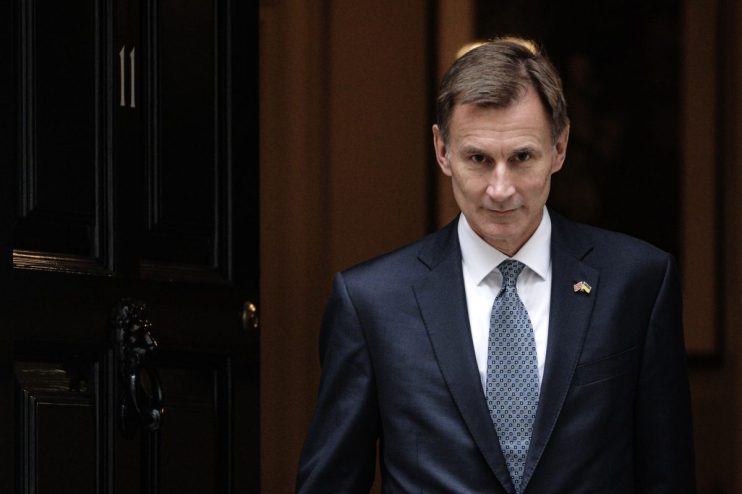Thursday 28 August 2025 6:00 am
| Updated:
Wednesday 27 August 2025 7:43 pm
Share
Facebook Share on Facebook
X Share on Twitter
LinkedIn Share on LinkedIn
WhatsApp Share on WhatsApp
Email Share on Email
 Former health secretary and Chancellor Jeremy Hunt said Tory-era policies on mental health needed “fundamental questions”.
Former health secretary and Chancellor Jeremy Hunt said Tory-era policies on mental health needed “fundamental questions”.
The overdiagnosis of mental health illness in young people costs the UK around £16bn a year, a new report has suggested, with former Chancellor Jeremy Hunt claiming policies he introduced around Special Education Needs and Disabilities (SEND) required “stretching questions”.
Research by the right-leaning think tank Policy Exchange has found that the overdiagnosis of mental health and neurodivergence has contributed to a rise of £4.5bn in SEND spending over ten years and child disability spending doubling.
Analysts at the think tank said that “concept creep”, whereby the definitions of some harm-related terms have expanded wider than intended, and concerns about supporting mental health had resulted in higher medical diagnoses.
They pointed to statistics showing that the number of girls receiving ADHD medication increasing by nine times between 2000 and 2018 as evidence that overdiagnosis was prevalent in the UK.
The report said spiralling costs in the state welfare bill, such as £1.1bn a year going towards taxis and projections for the child disability living allowance to hit £6.4bn, had prevented children with the most severe needs to get further support.
Former health secretary Jeremy Hunt said research showed “more fundamental questions” had to be asked of wider policies on SEND, including those he helped to introduce while serving in government.
“Across the political spectrum, and amongst a growing range of practitioners, it is now recognised that there is a level of ‘overdiagnosis’ in our system,” Hunt said in a foreword to the report.
“We need to cut through the complexity to better understand the drivers of demand we are seeing.
“This is a societal challenge of the highest order, given the impacts upon educational attainment, social integration, economic productivity and long-term well-being.”
The report calls for the UK’s SEND system to be “radically overhauled” and for less funding to go towards fidget spinners and Lego therapy.
Read more
Rachel Reeves to raise ‘stealth and sin’ taxes to cover black hole
As health secretary, Jeremy Hunt contributed to number of policies which brought in some parity between mental and physical health.
Researchers at Policy Exchange said new rules introduced under the Coalition government should be replaced or scrapped.
Jean-Andre Prager, who co-authored the report, said: “Our health and disability benefit system needs to be fundamentally reformed, and this includes not just working-age benefits but also how we support children.
“Child disability living allowance is from a bygone era, and our understanding of disability has fundamentally changed in the intervening more than 30 years.
“We need to reconsider the assessment and eligibility criteria of this benefit and create a more robust process.”
Mental health and disability costs
The report comes weeks before Chancellor Rachel Reeves’ Autumn Budget, where she is expected to have to fill a shortfall created by U-turns on £6bn welfare savings.
The government is expected to introduce some reforms to the wider welfare system and SEND after reviews but that may come after the Autumn Budget.
Personal independence payments (Pips) increased by around two per cent in the three months between the end of January and April, suggesting more than 800 new claimants were signing on each day.
The Office for Budget Responsibility project spending on benefits for working-age Brits to rise to £70bn by the end of the parliament from around £50bn in the year to March 2024.
Read more
‘Weak fiscal position’ pushes UK borrowing costs to 27-year high
Similarly tagged content:
Sections
Categories
People & Organisations
